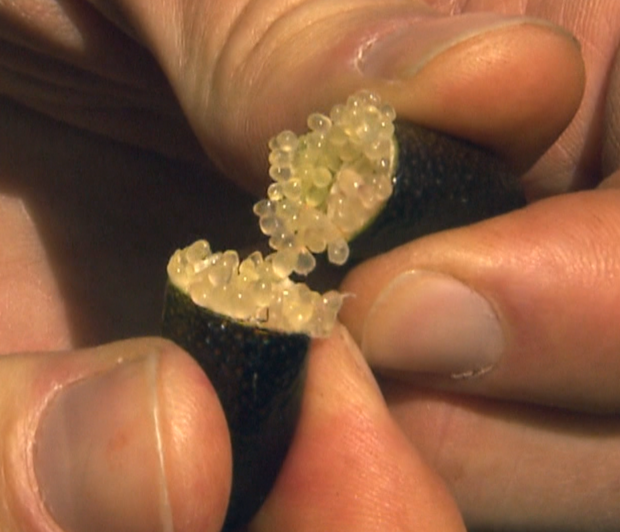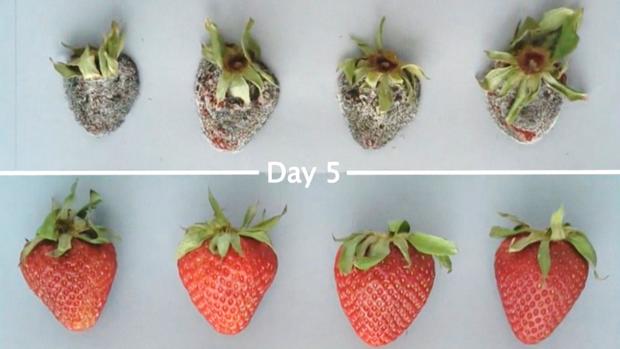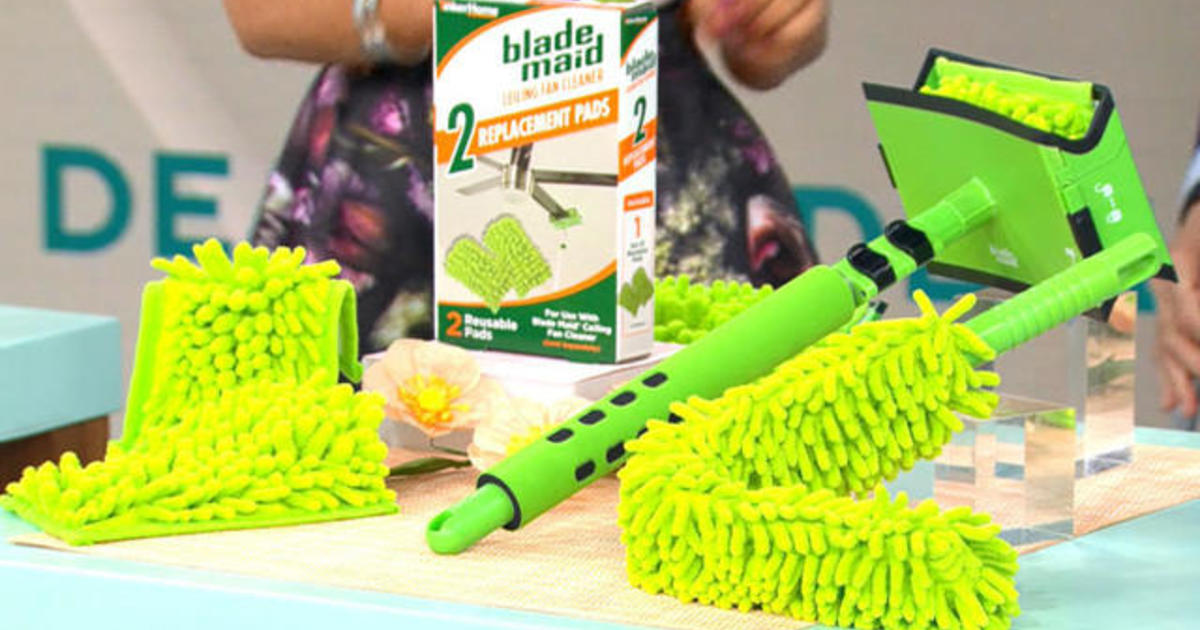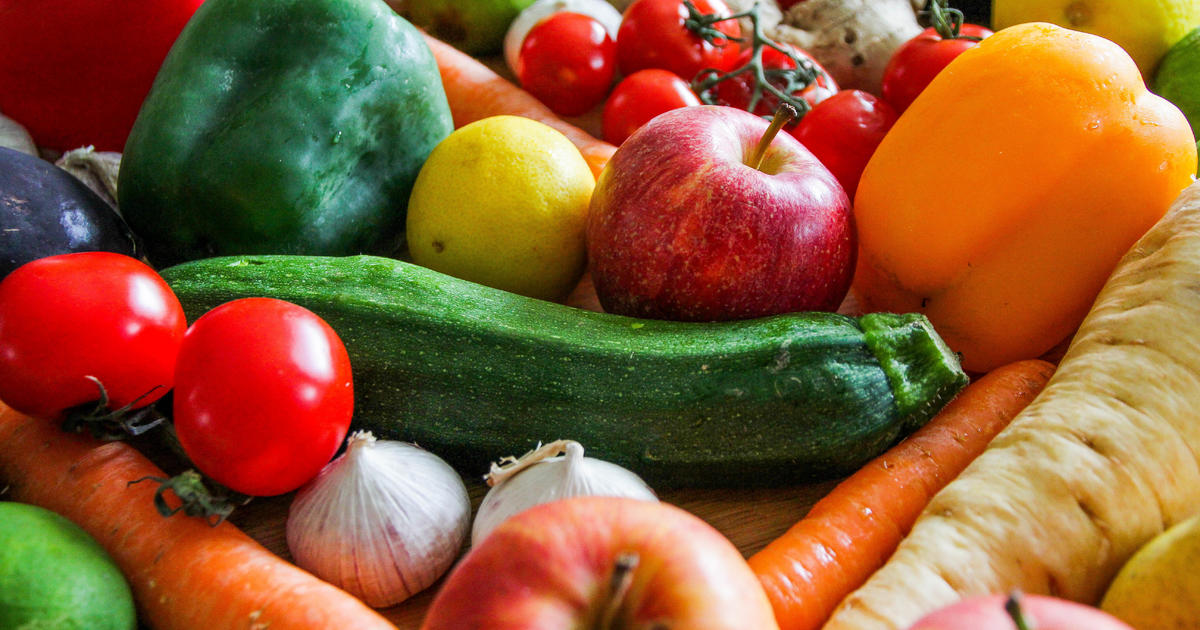How organic material is being used to extend shelf life of fresh produce
In our new series Real Food, we’re exploring the evolving way food is produced, sourced and distributed. In this edition we take a look at a Southern California startup that says their product can extend the life of most fruits and vegetables by up to five times.
On a lush hillside farm near Santa Barbara, it’s not just the views that grab your attention, but the rare produce on the trees – including aptly-named caviar limes.
Caviar limes are prized by restaurants and bars because of their acidity and texture. But they only last a week to 10 days after they’re picked, making shipping and distribution difficult, reports CBS News correspondent Ben Tracy.
“Once you pick it, there’s a time bomb going off,” Goodland Organics farmer Jay Ruskey said.
That’s where Apeel Sciences CEO James Rogers comes in. He teamed up with Ruskey more than two years ago.
“We use food to preserve food,” Rogers said.
They start with organic material like frozen grape skins. They extract certain food molecules and mix them up in different combinations. The resulting powder, called Edipeel, is mixed with water and sprayed on fresh produce.
“When it dries, it leaves behind the imperceptibly thin barrier of plant material on the outside of the produce, and that thin barrier slows down the rate that water gets out of the produce and it slows down the rate that oxygen gets in. And by doing that we can naturally preserve the life of fresh produce,” Rogers said.
“How much longer does the average piece of fruit last with your product on it?” Tracy asked.
“Each kind of produce has different characteristics,” Rogers said. “We can get extensions anywhere from twice the shelf life of a piece of produce to five times the shelf life of a piece of produce.”
A timelapse room is where they study the results. By Day 5, the untreated strawberries on top rot, but the treated ones on the bottom are still good to eat.
The product is FDA approved, and the thin layer it leaves behind is edible and tasteless. It would replace the wax that is often used on grocery store produce.
To those who say it’s “frankenfood” or it reminds them of sprayed pesticide, Rogers tries to be transparent.
“We’re taking stuff that you’re eating already in every bite of your produce and we’re just re-applying where it is on the produce, we’re putting it on the outside,” Rogers said.
The company hopes this product will help combat global hunger in places without access to refrigeration.
It could also help reduce food waste. In North America, 24 percent of produce is tossed out before it reaches the grocery store. Another 28 percent is thrown out at home. Food waste experts say no one technology is going to solve a problem this big.
“Fundamentally, this problem is driven by our habits around food and so we can’t ‘technology’ our way out of that. I think it needs to be paired with really careful shopping,” said Dana Gunders, senior scientist at NRDC, the Natural Resources Defense Council.
Apeel has raised $40 million from investors. Right now, they work with several growers and are in talks with large produce brands. It remains to be seen whether those using the product would pass that cost along to consumers. For farmers like Ruskey, Apeel is buying him valuable time.
“We’ve been able to do two or three times the shelf life is what we’ve seen,” Ruskey said. “I’m super happy to see the results.”





